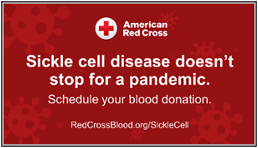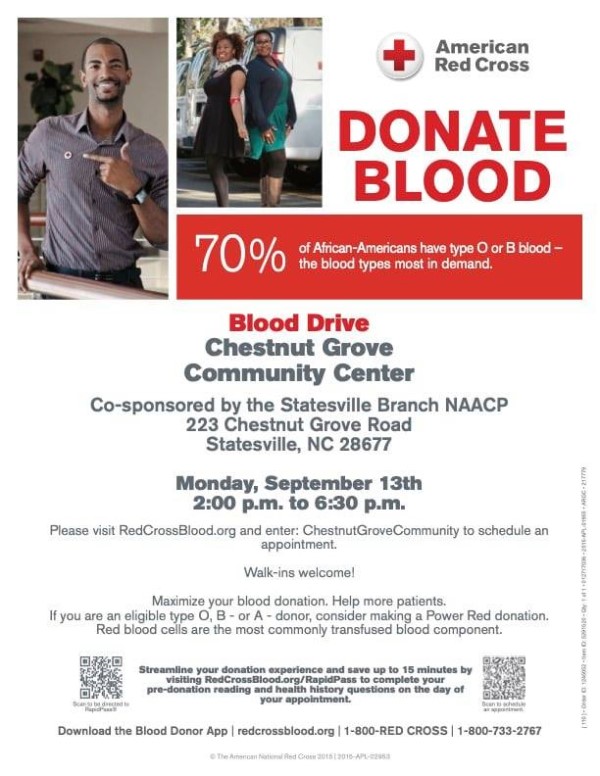
Help save lives on September 13 at Chestnut Grove Community Center
Special to Iredell Free News
September is National Sickle Cell Awareness Month, designated by Congress to help focus attention on the need for research and treatment of sickle cell disease. About 100,000 people in the U.S., most of whom are of African descent, are living with sickle cell disease, which is the most common inherited blood disorder in the country.
Sickle cell disease causes red blood cells to be sticky, hard and crescent-shaped instead of soft and round. This makes it difficult for blood to flow smoothly and carry oxygen to the rest of the body, which may lead to severe pain, tissue and organ damage, acute anemia and even strokes.
Blood transfusion helps sickle cell disease patients by increasing the number of normal red blood cells in the body, helping to deliver oxygen and unblock blood vessels. Red blood cells carry markers on their surface called antigens that determine blood type. Some are unique to specific racial and ethnic groups, and because of this, sickle cell disease patients are more likely to find a compatible blood match from a blood donor who is Black.
Donors are encouraged to donate blood to the American Red Cross on Monday, September 13, from 2 to 6:30 p.m. at Chestnut Grove Community Center to help save lives. Whether blood is needed for a chronic condition, such as sickle cell disease, a surgical procedure or a large-scale emergency, it’s the blood already on the shelves that helps save lives, and a diverse blood supply is needed to help the diverse patients who depend on it.
To make an appointment or to learn more, download the American Red Cross Blood Donor App, visit RedCrossBlood.org or call 1-800-RED CROSS (1-800-733-2767). Completion of a RapidPass online health history questionnaire is encouraged to help speed up the donation process. To get started, follow the instructions at RedCrossBlood.org/RapidPass or use the Blood Donor App.
A blood donor card or driver’s license or two other forms of identification are required at check-in. Individuals who are 17 years of age in most states (16 with parental consent where allowed by state law), weigh at least 110 pounds and are in generally good health may be eligible to donate blood. High school students and other donors 18 years of age and younger also have to meet certain height and weight requirements.




